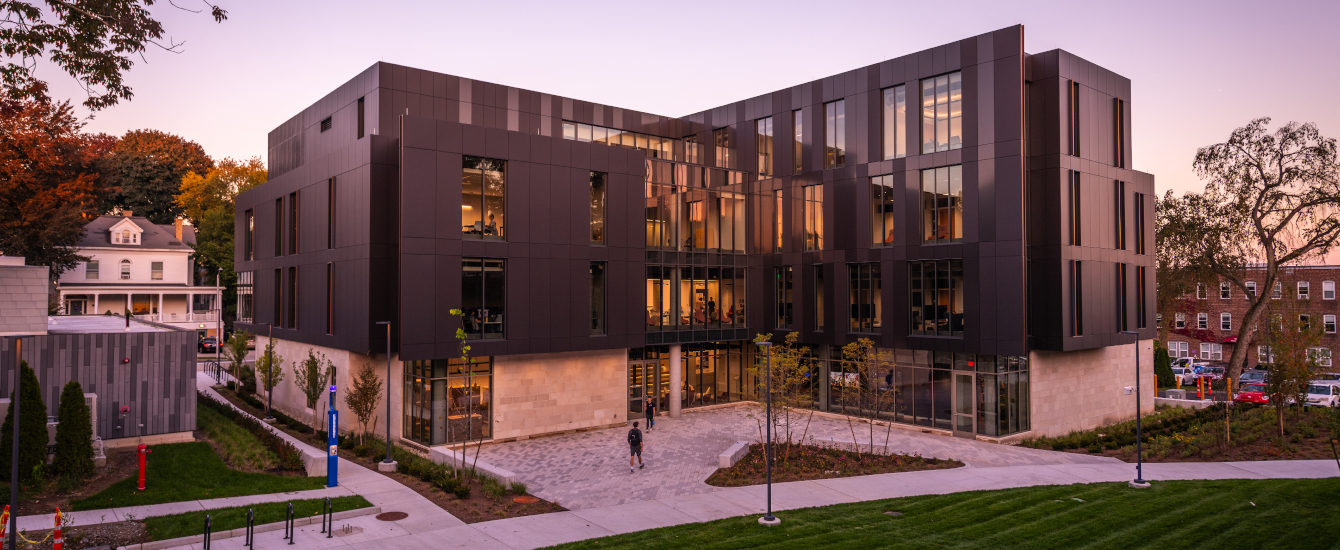The incubator and its activities will be a joint endeavor by the Alice Coonley Higgins Institute for Arts and Humanities, the Becker School of Design and Technology (BSDT), and the Department of Visual and Performing Arts (V&PA).
The facility will serve as a dynamic hub for the exploration of cutting-edge technologies and their application within the arts and humanities. This work has been made possible in part with the generous support of an external foundation and will involve the Higgins Institute’s Digital Humanities Research Collaborative. The incubator will be guided by a cohort, selected yearly, of two faculty fellows and four collaborative faculty, and will foster innovation through equipment demonstrations, where faculty and students can experiment with the latest tools in digital media, VR, AR, interactive technology, and other public programming.
Additionally, the incubator will facilitate presentations on project plans, offering a platform for scholars to refine their ideas and receive feedback, and opportunities to meet and work with guest artists and scholars. It will provide essential resources for travel and other costs associated with convening the collaborative, ensuring a seamless and sustainable integration of digital humanities into the broader academic curriculum. Graduate students from the BSDT program will offer invaluable consulting and technical support, assisting in the development of projects and courses that bridge the gap between traditional humanities and contemporary digital practices.
At the heart of the incubator will be a commitment to deep and thoughtful engagement with the concept of play. Recognizing play as a powerful tool for exploration, the incubator will invite participants to rethink and reimagine the boundaries of what play can mean in a technologically advanced world. Whether through interactive installations, immersive performances, or experimental game design, the space will encourage users to push the limits of creativity, utilizing VR, AR, and other emerging technologies to craft experiences that are as intellectually stimulating as they are visually and emotionally compelling.
But the facility will be more than just a playground for technological innovation—it will be a platform for the development of experimental and immersive interactive art works and performances that challenge traditional narratives and engage audiences and students in new and meaningful ways. The incubator will support artists and creators who are interested in leveraging the unique affordances of VR and AR to create experiences and performances that are not only seen but felt, experienced, and interacted with on a personal level. These performances will invite audiences to step into alternative realities, explore new perspectives, and become active participants in the storytelling process.
By integrating technology into the arts and humanities curriculum, the incubator will ensure that students are not only consumers of technology but also creators who can use digital tools to express complex ideas and emotions. Courses offered within the incubator will empower students to explore the aesthetics, narrative structures, power dynamics, and political implications of contemporary immersive experiences. These new media courses will challenge students to think critically about the impact of technology on society and to consider how their own creative work can contribute to ongoing cultural conversations.
The Arts and Technology Incubator will be a place where ideas come to life. It will be a space where students, faculty, and visiting artists can collaborate on projects that defy categorization, blending art, technology, and humanities in innovative and unexpected ways, and expanding these potentials in the Clark curriculum. By fostering a culture of experimentation and collaboration, the incubator will position itself as a leader in the exploration of the future of immersive experiences.
As a vibrant community of makers and thinkers, the incubator is committed to supporting a wide range of future projects, from small-scale experiments to large, interdisciplinary endeavors. It will provide the tools, resources, and support necessary for creators to push the boundaries of their disciplines, exploring new ways to engage with audiences and to redefine the role of technology in the arts. In doing so, the Clark Arts and Technology Incubator will not only enhance the academic curriculum but also contribute to the broader cultural landscape, shaping the future of arts and technology for years to come.

